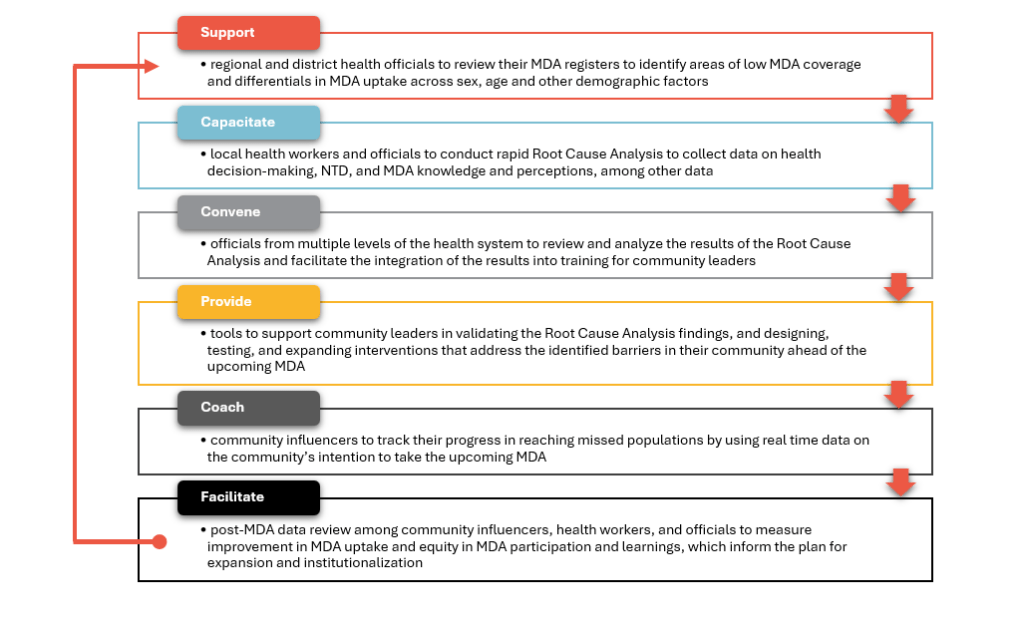The Power of Data in the Hands of Local Decision-Makers and Its Impact on NTD Service Provision
By Claire Karlsson, WI-HER Program Manager
WI-HER’s iDARE methodology helps improve local data quality, use, and ownership in Neglected Tropical Disease (NTD) service provision around the world.
iDARE (Identify, Design, Apply/Assess, Record, Expand) is a simple but science-based methodology that enables stakeholders to assess their existing local system; identify gaps, barriers, and inequities; and then design, test, and scale local solutions.
WI-HER and our government and project partners have applied the iDARE methodology in a variety of NTD-endemic countries and contexts around the world, resulting in increased NTD treatment uptake and equity in local NTD program outcomes, particularly through reaching marginalized communities often systematically and historically missed by NTD services.
A key aspect of this work has been supporting the capacity of local decision-makers from NTD endemic communities to collect and use quality NTD data to address the inequities in their local NTD programs:

As a result of WI-HER’s approach to improving data quality and use, government officials, health workers, and community members are better equipped to do real-time data analysis and interpretation and to generate local solutions based on the identified gaps. They, in turn, are able to produce and communicate disaggregated data, enabling gender equity and social inclusion analysis and decision-making.
With this capacitation, local decision-makers conduct timely and evidence-based decision-making for improved local NTD response and have an increased sense of local data ownership and motivation for quality improvement at the local level. This results in local decision-makers using their data to communicate to community members what behaviors may be impacting NTD transmission, propelling communities into action, and bolstering social accountability for improved NTD outcomes between communities and governments.
Ultimately, WI-HER’s iDARE methodology facilitates inclusive, locally-led solutions to help countries achieve their national NTD goals.